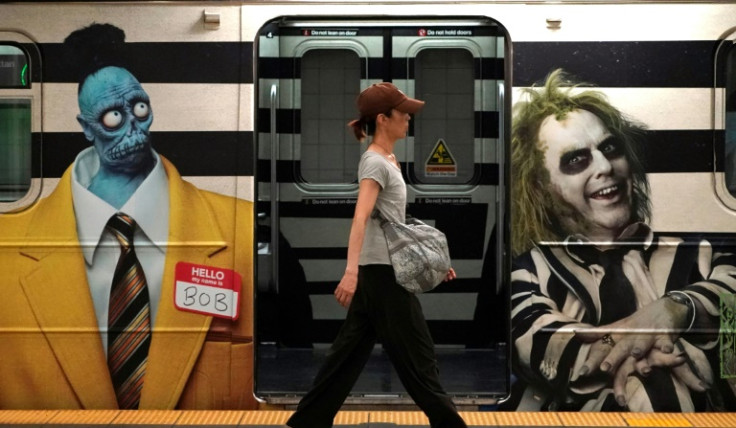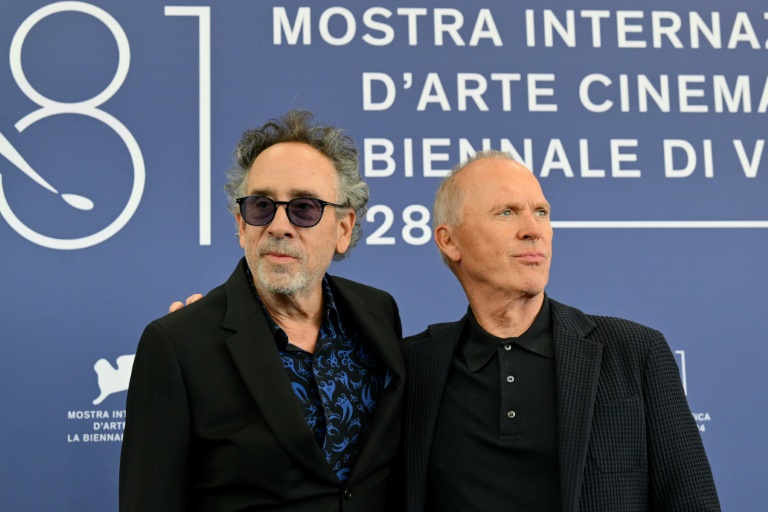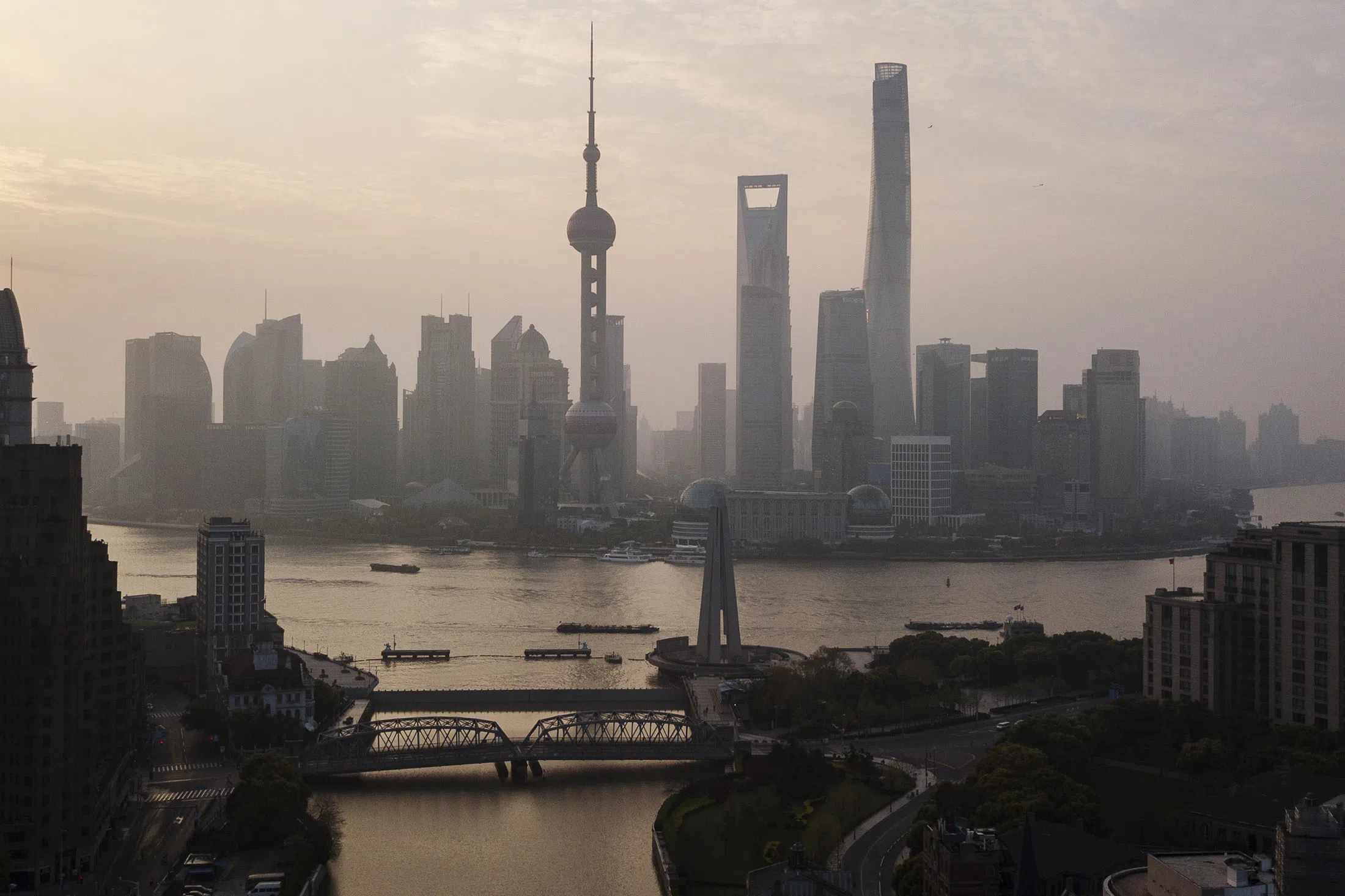The Venice Film Festival kicks off Wednesday with a devilish debut of Tim Burton’s “Beetlejuice” sequel and a surge of star power for the glitzy competition on the sun-splashed Lido.
Lady Gaga, George Clooney, Daniel Craig, Julianne Moore and Brad Pitt are among the A-listers expected in Italy’s watery city for the world’s longest-running movie festival, known as “La Mostra”.
Arriving via water taxi from across the Venetian lagoon for the 10-day event, the celebrities promise to return some big-budget Hollywood pizzazz after a low-key edition last year due to the Hollywood writers’ strike.
First up is the out-of-competition world premiere of “Beetlejuice Beetlejuice”, featuring Michael Keaton as a chaos-causing ghoul alongside Winona Ryder, Catherine O’Hara and Monica Bellucci.
The fantastical romp into the afterlife was a project “from my heart” for Burton, the acclaimed aficionado of the strange and ghoulish.
“In the past few years I got a little bit disillusioned with the movie industry,” Burton told journalists ahead of the opening.
“For me, this movie was re-reenergising, kind of getting back to the things that I love doing, the way I love doing it, the people I love doing it with,” he said.
The festival shifts tone Thursday, when eyes turn to Angelina Jolie as Maria Callas in “Maria”, Pablo Larrain’s biopic about the opera diva’s tormented life — one of 21 films in contention for the top Golden Lion prize to be awarded September 7.
Also much anticipated is the dark psychological thriller “Joker: Folie a Deux”, the sequel to US director Todd Phillips’ 2019 Venice-winning film loosely based on the DC Comics characters and set in a gritty Gotham City.
The sequel brings back Joaquin Phoenix, who won an Oscar for his depiction of the failed clown descending into mental illness, this time paired with Lady Gaga as his sidekick and love interest Harley Quinn.
Bond star Daniel Craig stars in “Queer” from Italy’s Luca Guadagnino, an adaptation of the William Burroughs novel set in 1940s Mexico City, while Australian director Justin Kurzel’s “The Order” features Jude Law as an FBI agent investigating white supremacy in the Pacific Northwest.
Spain’s Pedro Almodovar is back with his first full-length film in English, “The Room Next Door”, with Moore and Tilda Swinton.
Nicole Kidman stars with Antonio Banderas in the erotic thriller “Babygirl” from Dutch director Halina Reijn, about a powerful woman CEO who embarks on a torrid affair with a much-younger male intern.
The roster also includes US director Brady Corbet’s “The Brutalist”, featuring Adrien Brody as a Hungarian Jewish architect who emigrates to America after World War II and embarks on a project promising to change the course of his life.
Alongside the studio films and their stars, the festival is also hosting independent films often exploring often subjects, including two documentaries about the Ukraine war — “Songs of Slow Burning Earth” by Ukrainian director Olha Zhurba and “Russians at War”, in which Russian-Canadian filmmaker Anastasia Trofimova was embedded with a Russian army battalion in eastern Ukraine.
Israel director Amos Gitai’s “Why War” is based on correspondence between two of the 20th century’s brightest minds — Albert Einstein and Sigmund Freud — on the subject of war.
And Goran Hugo Olsson said his documentary, “Israel Palestine on Swedish Television 1958-1989”, based on 30 years of public broadcasting archives, was his “most painful film” to date.
All four films are playing out of competition.
With “Beetlejuice Beetlejuice”, Burton fans get to revisit the madcap world of his 1988 cult classic 36 years later.
The “Edward Scissorhands” director updates the oddball family drama centred on Lydia, played by Ryder, whose teenage daughter (Jenna Ortega) discovers a mystery in the attic, accidentally unleashing mayhem once again on the Deetz household.
When asked by a reporter whether another sequel about the prankish, irreverent ghoul Beetlejuice could be on the cards, Burton joked: “Well, let’s do the math.”
“It took 35 years (to do this sequel), I’ll be over 100 (for a third). I guess it’s possible — medical science these days — but I don’t think so.”
AFP

AFP







